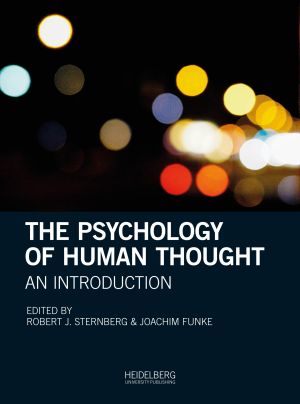Zitationsvorschlag
Galotti, Kathleen M.: Development of Human Thought, in Sternberg, Robert J. und Funke, Joachim (Hrsg.): The Psychology of Human Thought: An Introduction, Heidelberg: Heidelberg University Publishing, 2019, S. 327–340. https://doi.org/10.17885/heiup.470.c6680
Lizenz (Kapitel)

Dieses Werk steht unter der Lizenz Creative Commons Namensnennung - Weitergabe unter gleichen Bedingungen 4.0 International.
Identifier (Buch)
ISBN 978-3-947732-33-3 (PDF)
ISBN 978-3-947732-34-0 (Softcover)
ISBN 978-3-947732-35-7 (Hardcover)
Veröffentlicht
31.07.2019
Development of Human Thought
- The term, thinking, covers a number of cognitive processes that processes information. Examples include problem solving, reasoning, decision making, goal setting, and planning.
- Thinking often makes use of two other cognitive realms: language, and the knowledge base.
- Although Piagetian theory holds that before the age of about two, infants lack capacity for mental representation and therefore, thought, recent work poses a strong challenge to this tenet. Psychologist Renee Baillageron and her colleagues have shown that even three- to six-month-old infants have expectations about the way objects behave, indicating they already have some knowledge and some rudimentary reasoning abilities
- Preschoolers show an ability to draw deductive inferences under certain conditions. These abilities are fragile, but present.
- Preschoolers develop an elaborate theory of mind during the ages from two to five, learning to understand and predict what beliefs, expectations, emotions, and preferences another person might hold.
- Children’s inferential reasoning begins to look very similar to that of adults when the inferences involve concrete examples.
- Adolescents are much more capable than younger children of thinking hypothetically, about the future, and abstractly. This enriched ability is critical to another task of adolescence, developing an identity, a mature sense of who you are and what your goals, values, and principles are.






